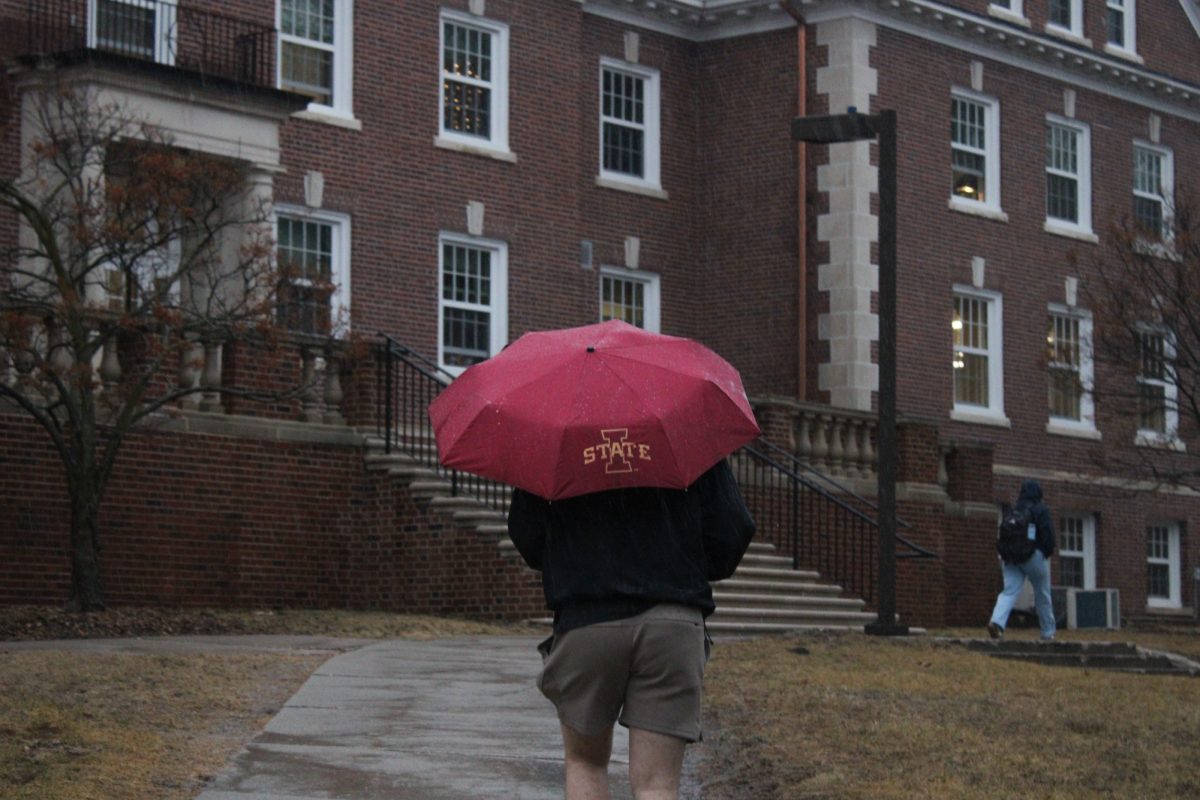Local TikTok influencers, retail managers and public figures give a glimpse into their perspective on the TikTok ban.
Michael Bugeja, a distinguished journalism professor, redirected the Daily’s request for comment to an article he authored in the Iowa Capitol Dispatch in April 2023, titled “Social influencer ethics and the implications of a TikTok ban.”
Bugeja stated in the article that omitted from the discussion of banning the app is how many people rely on social media for their livelihood, as 1.5 million Americans patronize it.
“Social influencers increasingly are commanding marketing and advertising dollars that once went to legacy media, such as newspapers,” Bugeja stated. “Total influencer spending in the U.S. is projected to hit $6.16 billion this year as opposed to $5.51 billion for newspapers.”
Bugeja said Instagram commands the most influencer dollars at 44.7%, followed by YouTube at 17.7% and TikTok at 17.1%.
“Influencers receive free gifts, hospitality and other amenities, not included in the above figure,” Bugeja stated. “The field also is monitored closely by the Federal Trade Commission, with legal consequences for those who fail to disclose endorsements and other connections with corporate brands.”
Furthermore, Bugeja stated that banning TikTok will “affect tax receipts until that revenue flows to other social media, primarily platforms like Facebook, Instagram, YouTube and Snapchat.”
Chris Stocks, a TikTok influencer and a junior in entrepreneurship at Iowa State, has been making videos for four and a half years but said he considered himself an influencer for three of those years.
“At the beginning, it was just a kid making videos,” Stocks said.
Stocks said he thinks a lot of the reasons for banning TikTok were not real.
“A large part of TikTok is owned by the U.S.,” Stocks said. “They have a lot of U.S. employees. They have servers in the U.S. that run their American data and I think if we’re worried about national security, there are much greater things we could be doing. Other companies like Facebook, it’s been known and shown that they also send our data a lot of places, and then the apps like [Facebook] Messenger [and] WhatsApp collect way more data than TikTok does, like, scary things from your household, and no one seems to be worried about that.”
Furthermore, he mentioned the people who are trying to pass the ban on TikTok.
“If you look at who’s trying to get the ban passed and how much Meta stock they bought recently–like, it’s pretty obvious,” Stocks said.
Despite making video content, he said short video content is horrible for people and the ban is probably a net positive for society.
“At the end of the day, I don’t even think that’s reliable, because people are just going to use reels and shorts anyway,” Stocks said. “So I don’t think, like, banning it is going to make us all less addicted to dopamine. I guess it’s probably horrible for me to say because I’m the one who produces that content but I’m just being open.”
Stocks said he gets the most consistent engagement and deals from TikTok.
“I just have a smaller platform, and I don’t get as many views there, like a video, like a Netflix video, that’s done 10 million on TikTok will do 10,000 on Instagram,” Stocks said. “The range is huge. So it would be harder for me to monetize and get as many views as I did in the past.”
Stocks said social media is his full-time job, and his income would go down with a ban.
“I have over a million followers on other platforms, so it wouldn’t be anything drastic, but I had a lot of deals wind up for February and March that were solely on TikTok and seeing that go away would kind of break like that,” Stocks said.
Rachel Witte, retail manager at Barefoot and an Iowa State alum, said their publicity won’t be affected much because TikTok is a specific audience.
“Mainly like younger college students, high school kids, like people in that age group, that’s how we reach most of our people that way,” Witte said.
Witte said Instagram is their main platform but the ban will affect small businesses.
“I think it will hurt a lot of businesses, especially smaller businesses because TikTok is such a unique platform, and it’s able to reach so many people without having to pay for promoted ads or anything like that,” Witte said.
Stocks said his free speech does not feel violated.
“It’s not like they’re banning all social media,” Stocks said. “ I do think there is some censorship there, you can tell it’s the new source of news for a lot of people, and it allows people with no platform, no media production experience to gain a platform in an hour of shooting a video in their room on their phone. So I do think there might be some censorship there in terms of the virality that people can get very quickly, have a voice, [that] would be gone.”













